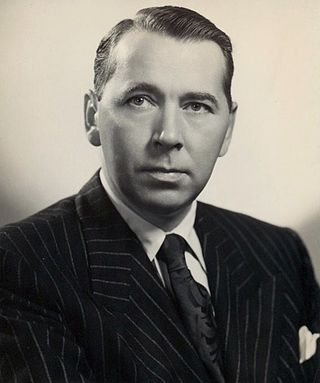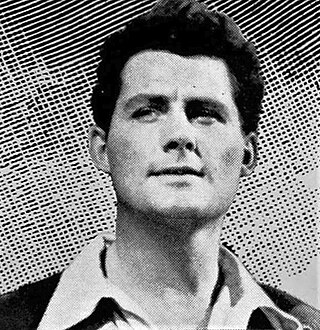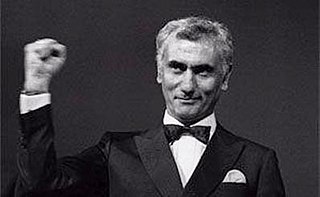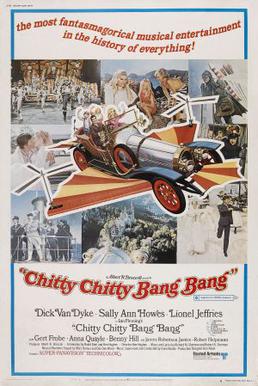Related Research Articles
Spy fiction is a genre of literature involving espionage as an important context or plot device. It emerged in the early twentieth century, inspired by rivalries and intrigues between the major powers, and the establishment of modern intelligence agencies. It was given new impetus by the development of fascism and communism in the lead-up to World War II, continued to develop during the Cold War, and received a fresh impetus from the emergence of rogue states, international criminal organizations, global terrorist networks, maritime piracy and technological sabotage and espionage as potent threats to Western societies. As a genre, spy fiction is thematically related to the novel of adventure, the thriller and the politico-military thriller.

Alexander Knox was a Canadian actor and writer. He appeared in over 100 film, television, and theatrical productions over a career spanning from the 1920’s until the late 1980’s. He was nominated for an Oscar and won a Golden Globe for his performance as American President Woodrow Wilson in the 1944 film Wilson. However, his career in the United States was hampered by McCarthyism, and he spent the rest of his career in the United Kingdom.

Robert Archibald Shaw was an English actor, novelist, playwright and screenwriter. Beginning his career in theatre, Shaw joined the Shakespeare Memorial Theatre after the Second World War and appeared in productions of Macbeth, Henry VIII, Cymbeline, and other Shakespeare plays. With the Old Vic company (1951–52), he continued primarily in Shakespearean roles. In 1959 he starred in a West End production of The Long and the Short and the Tall.

Michael Frayn, FRSL is an English playwright and novelist. He is best known as the author of the farce Noises Off and the dramas Copenhagen and Democracy.

The Spy Who Loved Me is the ninth novel and tenth book in Ian Fleming's James Bond series, first published by Jonathan Cape on 16 April 1962. It is the shortest and most sexually explicit of Fleming's novels, as well as a clear departure from previous Bond novels in that the story is told in the first person by a young Canadian woman, Vivienne Michel. Bond himself does not appear until two-thirds of the way through the book. Fleming wrote a prologue to the novel giving Michel credit as a co-author.

Eon Productions Ltd. is a British film production company that primarily produces the James Bond film series. The company is based in London's Piccadilly and also operates from Pinewood Studios in the UK.

John Edmund Gardner was an English spy and thriller novelist, best known for his James Bond continuation novels, but also for his series of Boysie Oakes books and three continuation novels containing Sir Arthur Conan Doyle's fictional villain, Professor Moriarty.

Walter Herman Wager was an American crime and espionage-thriller novelist and former editor-in-chief of Playbill magazine. The movie Telefon, starring Charles Bronson, was inspired by his novel of the same name. His book 58 Minutes was adapted into Die Hard 2, starring Bruce Willis.
John Rankine was a British science fiction author, who wrote books as John Rankine and Douglas R. Mason. Rankine was born in Hawarden, Flintshire, Wales, attended Chester Grammar School, and in 1937 began study of English Literature and Experimental Psychology at the University of Manchester, where he was a friend of Anthony Burgess.

Yılmaz Güney was a Kurdish film director, screenwriter, novelist, and actor. He quickly rose to prominence in the Turkish film industry. Many of his works were devoted to the plight of ordinary working-class people in Turkey. Güney won the Palme d'Or at the Cannes Film Festival in 1982 for the film Yol which he co-produced with Şerif Gören. He was at constant odds with the Turkish government over the portrayal of Kurdish culture, people and language in his movies.

Elleston Trevor was a British novelist and playwright who wrote under several pseudonyms. Born Trevor Dudley-Smith, he eventually changed his name to Elleston Trevor. Trevor worked in many genres, but is principally remembered for his 1964 adventure story The Flight of the Phoenix, written as Elleston Trevor, and for a series of Cold War thrillers featuring the British secret agent Quiller, written under the pseudonym Adam Hall.
Nathaniel Goddard Benchley was an American writer from Massachusetts.

Albert Salmi was an American actor of stage, film, and television. Best known for his work as a character actor, he appeared in over 150 film and television productions.

Robert Donner was an American television and film actor.

Chitty Chitty Bang Bang is a 1968 musical-fantasy film directed by Ken Hughes, produced by Albert R. Broccoli, and with a screenplay co-written by Roald Dahl and Hughes. It is loosely based on the children's novel Chitty-Chitty-Bang-Bang: The Magical Car (1964) by Ian Fleming. The film stars Dick Van Dyke, Sally Ann Howes, Lionel Jeffries, Gert Fröbe, Anna Quayle, Benny Hill, James Robertson Justice, Robert Helpmann, Heather Ripley, and Adrian Hall.
Frank Norman was a British novelist and playwright.

Rupert Lisburn Gwynne Davies FRSA was a British actor best remembered for playing the title role in the BBC's 1960s television adaptation of Maigret, based on Georges Simenon's novels.
Quiller is a fictional character created by English novelist Elleston Trevor. Quiller, whose one-word name is a pseudonym, works as a spy, and he is the hero of a series of 19 Cold War thrillers written under the pseudonym Adam Hall, and became Trevor's most popular character.
Bang Young-ung was a South Korean novelist whose works focus on affectionately portraying the lives of ordinary people in contemporary South Korea.

George Varghese Kakkanadan, commonly known as Kakkanadan, was an Indian short-story writer and novelist in the Malayalam language. His works broke away from the neo-realism that dominated Malayalam literature through the 1950s and 1960s. He is often credited with laying the foundation of modernism in Malayalam literature. He is a recipient of Kendra Sahitya Akademi Award and Kerala Sahitya Akademi Awards in addition to numerous other awards and recognitions.
References
- ↑ "Crime Fiction IV - Allen J. Hubin". crimefictioniv.com. Retrieved 4 September 2010.
- ↑ New society, Volume 12, 1968, pg. 683.
- ↑ "Whatever happened to Adam Diment?", The Observer , 15 June 1975.
- ↑ "Adam Diment, the superstar spy novelist who vanished for four decades" . Retrieved 30 March 2017.